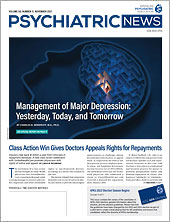Two recent New York Times articles on health documented the increased incidence of infertility, pregnancy loss, and pregnancy complications among studied groups of women physicians. Here is a small sample of the recent papers on this topic.
In a study published in the October 2016 in the Journal of Women’s Health, a random sample of 327 women physicians, 24% (more than twice the rate of the general population) had been diagnosed with infertility at a mean age of 33.7 years. Among those with infertility, 29.3% reported diminished ovarian reserve, and 21.3% never conceived. Faced with this infertility, many respondents would have tried to conceive earlier, chosen a different specialty, or pursued oocyte cryopreservation.
A study posted July 28 in JAMA Surgery surveyed 692 female surgeons and 158 nonphysician female partners of male surgeons, who were used as controls. Female surgeons had fewer children and delayed childbearing. Nearly 25% of women surgeons had infertility necessitating in vitro fertilization. The survey also found that 42% of women surgeons had experienced a pregnancy loss, more than twice the rate of the general population, following which most of them had taken no time off. Female surgeons had significantly higher rates of major pregnancy complications such as perinatal depression, hypertensive and placental disease, and intrauterine growth restriction. More than half (56%) of the pregnant women surgeons surveyed worked more than 60 hours a week, and those working 12 or more hours a week in the operating room (OR) during the last trimester were subject to a higher complication rate. A woman surgeon featured in one of the Times articles had a small stroke after developing severe preeclampsia at 34 weeks after working long hours in the OR.
A January 2015 study in Journal of Obstetrics and Gynaecology Canada of 3,767 medical and surgical residents found that residents have higher rates of pregnancy loss and pregnancy complications than the general population and that the rate of pregnancy complications was five times higher for those working more than 8 hours a week in the OR.
These are sobering findings despite the fact that we do not yet have a prospective, randomized, controlled study that would provide more accurate data. Women physicians can likely anticipate double the infertility and pregnancy loss of other women and will have significantly more pregnancy complications, especially when they work long hours. Authors of the articles cited have proposed solutions to these problems that include providing residents and medical students with more education on infertility and cryopreservation, offering built-in support for women who undergo a pregnancy loss, and anticipating that the problem will likely self-correct because the percentage of female medical students has now surpassed men, giving women more agency in the system.
One cannot help but think when reading this: Have we in medicine lost our minds? Have the institutions of medicine become so intransigent that they would rather see their women physicians suffer infertility, pregnancy complications, and loss than recognize the fact that, for example, women surgeons who are in their third trimester should not be required to stand in surgery for more than 12 hours a week—period? And why can’t residency programs that train future heart transplant surgeons solve the logistics of creating a residency system with built-in redundancy to accommodate the predictable number of women who will become pregnant during residency?
The same women physicians who have already possibly endured unequal pay and sexual harassment and who have hidden in bathrooms to pump their breast milk to conform to present expectations are now suffering painful intrusions into their ability to get pregnant, carry their baby to term, and have a pregnancy freer of complications. Academic medicine has not autocorrected over the years to accommodate the beautiful biology of so many of its contributing members. If we had not already reached the limit, we have reached it now. We don’t need small adjustments to the current system; we need a wholesale change. Medical institutions, all physicians, and especially we as psychiatrists must rise up immediately to enact solutions to this intolerable reality. ■
“A Medical Career, at a Cost: Infertility” is posted at
here.
“Surgeons at Greater Risk of Pregnancy Loss, Study Finds” is posted
here.
“Fertility and Childbearing Among American Female Physicians” is posted
here.
“Incidence of Infertility and Pregnancy Complications in US Female Surgeons” is posted
here.
“Obstetrical Complications in Pregnant Medical and Surgical Residents” is posted
here.

